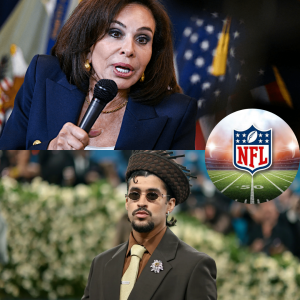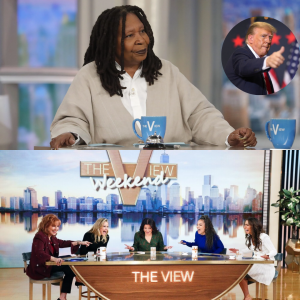In a move that could only happen in 2025 America, Turning Point USA — the outspoken conservative youth organization founded by Charlie Kirk — has decided to tackle one of the nation’s most sacred cultural institutions: the Super Bowl Halftime Show.
The group announced plans for an “All-American Super Bowl Halftime Show,” a simultaneous counter-event meant to rival the NFL’s official halftime performance, which is reportedly set to be headlined by global superstar Bad Bunny. The announcement dropped like a flag on the 50-yard line — half entertainment stunt, half cultural statement, and 100% red-white-and-blue theater.
Kirk put it bluntly in his post: “We don’t hate the Super Bowl. We just think it’s time for an option that puts America — and American values — first.”
Cue the fireworks, the guitars, and probably a few bald eagles.
The Gridiron Goes Cultural
Every year, the Super Bowl halftime show is more than a concert; it’s a mirror held up to America’s soul. From Janet Jackson’s “wardrobe malfunction” to Beyoncé’s politically charged choreography to Rihanna’s high-altitude pregnancy reveal, the show has long blurred the lines between entertainment and statement.
But this year, the fight isn’t just about pop stars or pyrotechnics — it’s about identity.
When rumors spread that Bad Bunny — the Puerto Rican megastar who’s dominated global charts and reshaped reggaeton into a worldwide phenomenon — would headline the NFL’s marquee event, reactions split faster than a safety covering Tyreek Hill. Fans of Bad Bunny celebrated what they saw as a powerful reflection of modern America’s diversity. Detractors saw something else: a departure from tradition, from English-language music, from what they perceive as the show’s “American roots.”
Enter Turning Point USA.
To them, the halftime stage isn’t just entertainment anymore — it’s a front line in a cultural tug-of-war over who gets to define “American.”
The ‘All-American’ Alternative
TPUSA’s announcement didn’t just criticize; it offered an alternative. The group’s “All-American Super Bowl Halftime Show” promises “an authentic, unapologetic celebration of America.”
Rather than booking a pre-determined lineup, the organization opened voting to fans. The ballot? Three options:
-
“Anything in English”
-
“Americana”
-
“Worship”
Each choice carries as much symbolism as sound. “Anything in English” signals a return to linguistic familiarity in an increasingly bilingual entertainment landscape. “Americana” nods to roots rock, country, and folk — the soundtrack of small towns and long highways. “Worship,” meanwhile, reaches out to faith-based audiences disillusioned with the glitz and spectacle of mainstream pop.
According to early data shared on TPUSA’s channels, “Worship” music is leading the polls, followed closely by “Americana.” Insiders hint that “a few well-known Christian and patriotic country artists” have already been contacted. The show is set to stream online, with possible simulcasts through churches, college campuses, and affiliated community networks.
Kelly Erwin, a TPUSA spokesperson, said in a press statement:
“If the NFL won’t honor the traditions and values that made football great, we will. This isn’t about division — it’s about offering fans a choice.”
Bad Bunny vs. the Ballads of the Heartland
For the NFL, the halftime show has always been a tightrope between global relevance and American tradition. The league wants reach, and few artists command global audiences like Bad Bunny. He’s sold out stadiums, racked up billions of streams, and broken language barriers — his success represents the new face of American pop culture: multicultural, global, and unashamedly hybrid.
But for Turning Point and its supporters, that’s precisely the issue. They argue that the Super Bowl should be a celebration of America’s cultural heritage, not an export product.
Charlie Kirk framed it this way in an interview with a conservative podcast:
“We’re not against anyone. We just want to remind the country that it’s okay to celebrate being American — in English, with the music that built this nation.”
Critics on the other side argue that “being American” has always been about diversity — the fusion of cultures, languages, and styles that make the U.S. a creative powerhouse. To them, Bad Bunny isn’t an outsider to American culture; he is its evolution.
And that’s the paradox at the heart of this clash: one group believes America’s cultural identity is being diluted; the other believes it’s finally being fully expressed.
Two Halftimes, One Nation
The logistics of the “All-American Halftime Show” are ambitious. TPUSA says it will air during the same 15-minute slot as the official NFL broadcast. The plan is to create a parallel viewing experience: while millions watch Bad Bunny electrify the stadium, another audience will tune into TPUSA’s patriotic showcase, streamed via its digital platforms and possibly mirrored by partner churches and community centers across the country.
The goal, according to organizers, isn’t to “boycott” but to “build.” They see their project as part of a larger trend — conservatives creating parallel cultural ecosystems: from media networks and film studios to coffee brands and streaming services. The logic is simple: if mainstream institutions don’t reflect your values, make your own.
“People used to say, ‘If you don’t like it, change the channel,’” said one event planner. “Well, now we’re changing the whole broadcast.”
It’s both bold and symbolic. Two halftime shows — one global, one nationalistic — airing at the same time. It’s not just a split screen; it’s a snapshot of a divided pop culture.
The Rise of the Parallel America
Turning Point’s move isn’t happening in isolation. Across the cultural spectrum, America is fracturing into twin realities. On one side, mainstream entertainment is increasingly globalized, inclusive, and digitally interconnected. On the other, a growing segment of audiences feels alienated, nostalgic for a time when “American” meant something more traditional, more rooted, and perhaps more predictable.
This “parallel America” is building its own entertainment world — streaming platforms, record labels, award shows, even comedy tours — all promising “uncensored,” “faith-based,” or “patriotic” alternatives.
TPUSA’s halftime project fits neatly into this trend. It’s less about football and more about the larger experiment of cultural independence. Can you create an entire entertainment ecosystem outside of Hollywood and still compete for attention?
If nothing else, it’s a test of whether values-driven media can thrive without mainstream endorsement — or whether it remains confined to its own echo chamber.
Who Owns ‘American’?

At its core, this debate isn’t about Bad Bunny or Turning Point — it’s about the meaning of American culture itself. Is it a fixed tradition, anchored in language, faith, and history? Or is it a fluid, evolving mosaic that changes with every new wave of influence and innovation?
For generations, American identity has been defined by both — by the tension between preservation and reinvention. Jazz, rock, hip-hop, and country all began as counter-movements before becoming national staples. Perhaps the same will happen with today’s cultural divides: what feels like a rebellion now might one day be canon.
Sociologists often describe this moment as “identity fatigue” — a sense that every expression of culture must carry political weight. Even a football concert can become a referendum on who we are.
And yet, there’s something undeniably American about that too. No other country argues so passionately over what its halftime show should mean.
The Spectacle Ahead
As February approaches, anticipation is building on both sides. NFL insiders promise a “historic, boundary-pushing performance” from Bad Bunny, while TPUSA teases “a heart-pounding, flag-waving showcase for families and patriots.”
The dueling shows could create one of the strangest split-screen moments in Super Bowl history: two celebrations of America, each claiming to represent the “real” thing.

Whether the TPUSA broadcast draws millions or just a niche following, its existence alone marks a turning point. The Super Bowl, once the last unifying event in American pop culture, is now part of the cultural divide.
Beyond the End Zone
In the end, maybe both sides win — or both lose. One show will dominate in ratings, the other in headlines. But the real story isn’t about music or football; it’s about meaning.
When Charlie Kirk says the show will put “America first,” and Bad Bunny sings to millions in Spanish, both are, in their own way, expressing love for the same country — just in different languages, styles, and rhythms.
That’s the paradox and beauty of American culture: it’s big enough for contradictions, built to argue with itself, and wired to turn even disagreement into spectacle.
So when the lights dim this Super Bowl Sunday and two stages blaze in opposite corners of the nation’s attention, viewers might want to remember this:
For all the noise and rivalry, both screens tell the same story — a country still searching, still singing, still trying to figure out what it means to be all-American.








